Guess who's most supportive of Canada's political system. No really, guess.
Final thoughts 30 years after the 1995 Quebec referendum on sovereignty
Nothing can be taken for granted in politics. As my colleague Charles Breton explained in the interview I published earlier this week, no one can say for sure how the country’s political system might respond to a return to power of a sovereigntist party in Quebec, or how those who are currently “on the fence” might vote if eventually forced to choose between “yes” and “no” in a referendum.
That said, it continues to interest me that, over the past 15 years, Quebec has emerged as the jurisdiction whose residents are the most supportive of Canada’s political system.
The change has been gradual, and the differences in opinions between Quebecers and other Canadians today are not dramatic. But it remains the case that Quebecers are now more likely than other Canadians to express a lot of respect for Canada’s political institutions, a lot of support for the country’s political system, and a lot of pride in living under our political system.
See for yourself.
The change over time is clearest and most consistent in the case of the question about support for the political system: strong support among Quebecers increased by 13 percentage points, from 33 to 46 percent, between 2010 and 2025. There was no similar increase in the rest of the country (strong support outside Quebec fell marginally from 42% to 40%). But, some ups and downs notwithstanding, the proportion of Quebecers with a lot of respect for Canada’s political institutions is 16 points higher today than in 2010; the proportion with a lot of pride living under Canada’s political system is 15 points higher.
The trend in Quebec contrasts with that in other regions, most notably Alberta, where strong support for the political system has declined. This allows me to offer one of my favourite kinds of chart, with criss-crossing lines.
I have written elsewhere about the possible reasons for these trends, pointing mainly to economic factors. Other factors are surely relevant, including an absence in recent years of a major confrontation between the federal and Quebec provincial governments.
For today, on the 30th anniversary of the 1995 Quebec referendum on sovereignty, I am not going to get deeper into explanations. I am just offering observations. I observe that, three decades after the country almost split apart, Quebecers stand out as being the most likely to say that the country’s political system deserves support.
This post features data from the AmericasBarometer 2025 Canadian Survey. Results from this survey will be posted on our website later this autumn.
The AmericasBarometer is a regular comparative survey of democratic values and behaviours that covers countries in North, Central and South America, as well as a significant number of countries in the Caribbean (the 2025-26 study will cover 20 countries). The project is led by the LAPOP Lab at Vanderbilt University’s Center for Global Democracy (CGD). The Canadian survey was conducted by the Environics Institute for Survey Research, in partnership with CGD’s LAPOP Lab at Vanderbilt University and with the support of the Max Bell Foundation.
The survey was conducted online with a sample of 3,550 Canadians (aged 18 and over) between July 30 and August 7, 2025. The results are weighted by region, age, gender, education and language so as to be fully representative of the Canadian population.
The author is solely responsible for any errors in presentation or interpretation.
What is the Environics Institute for Survey Research? Find out by clicking here.
Follow us on other platforms:
Bluesky: @parkinac.bsky.social
Twitter: @Environics_Inst or @parkinac
Instagram and Threads: environics.institute
Photo credit: Evan Velez Saxer



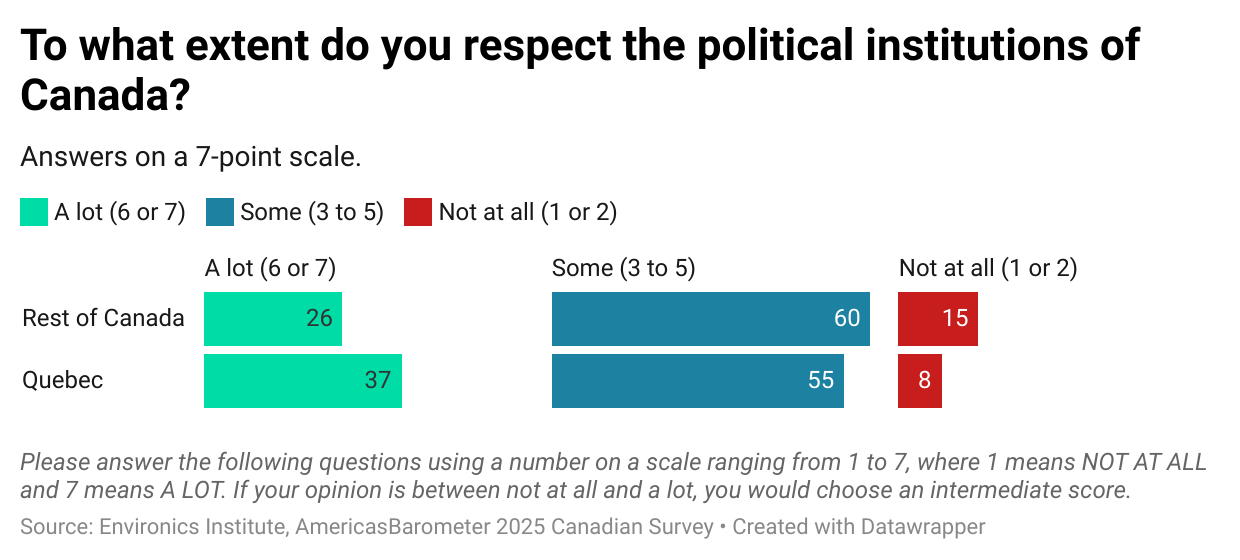
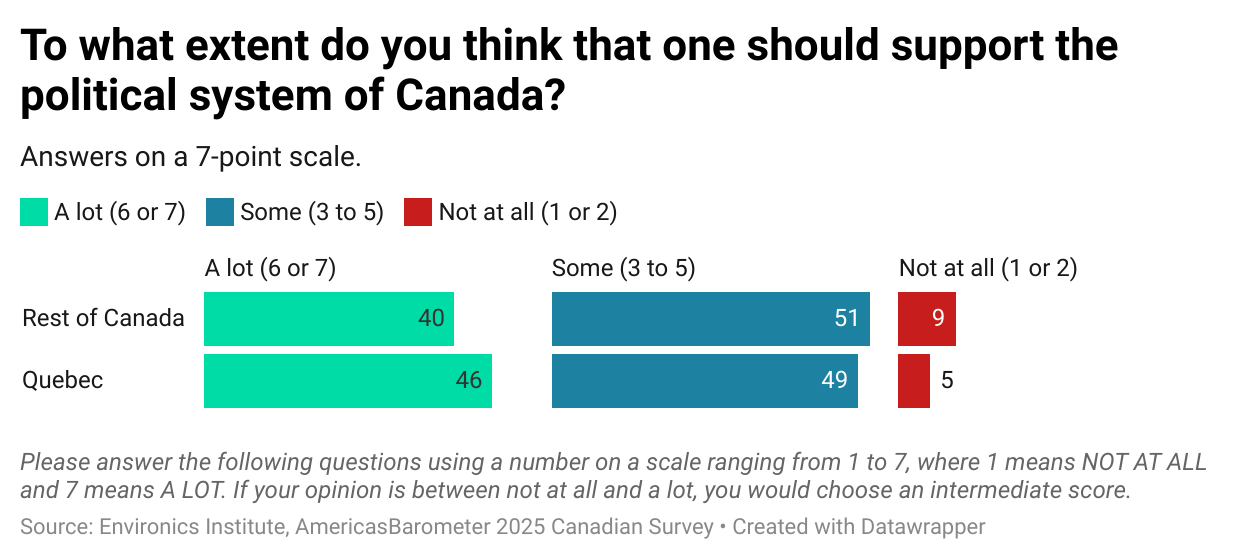
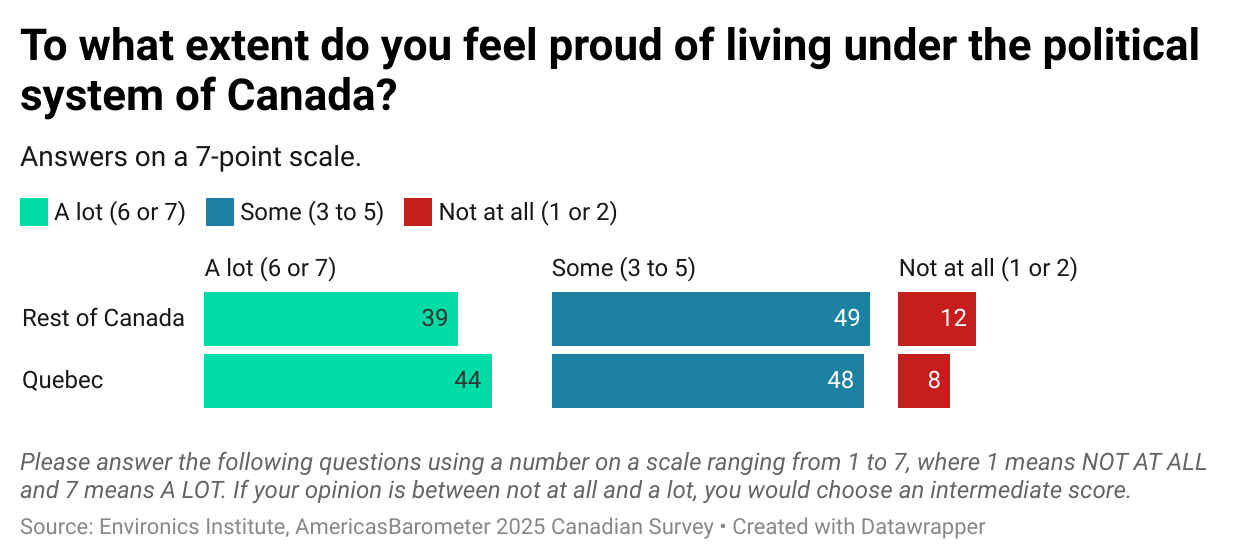
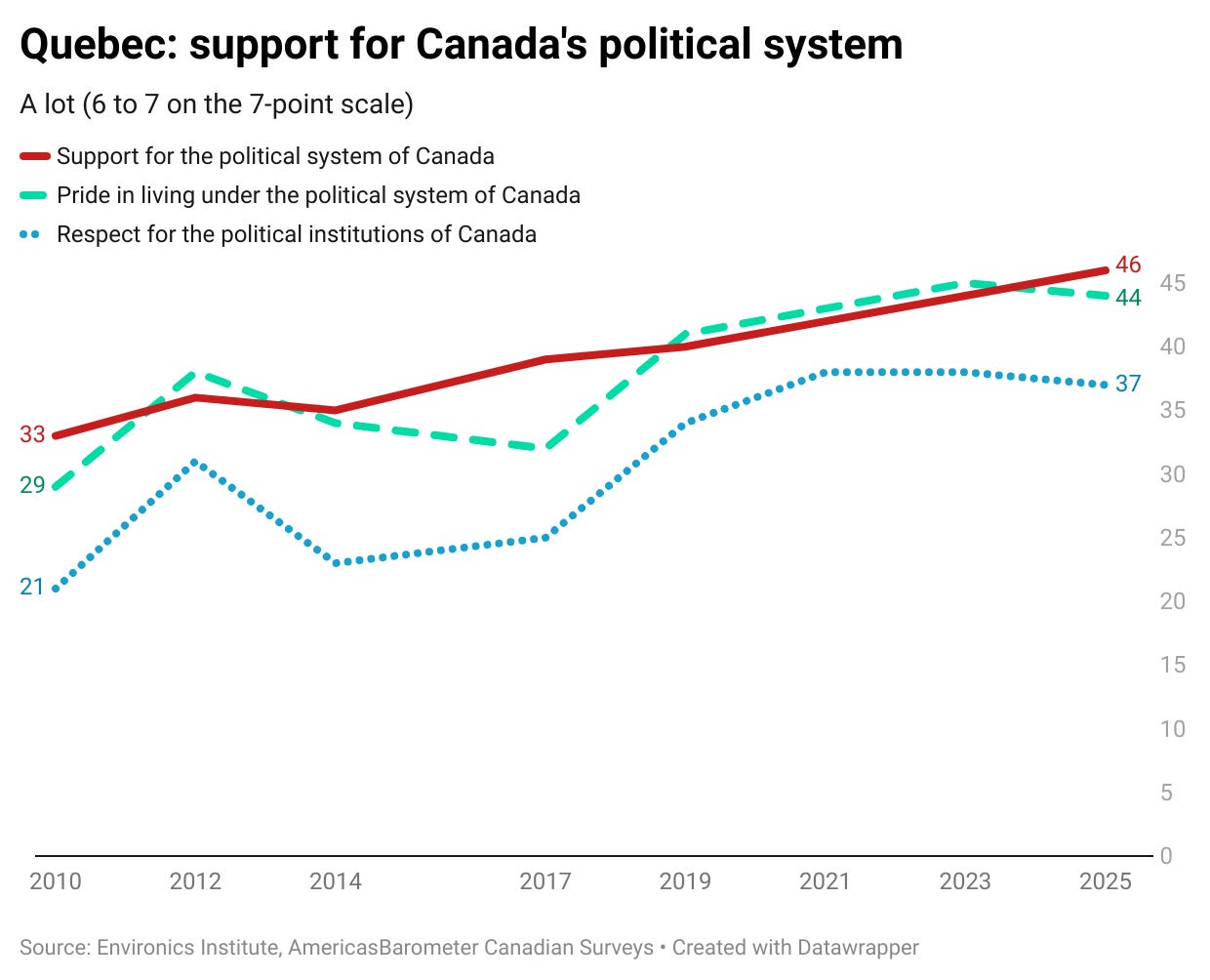
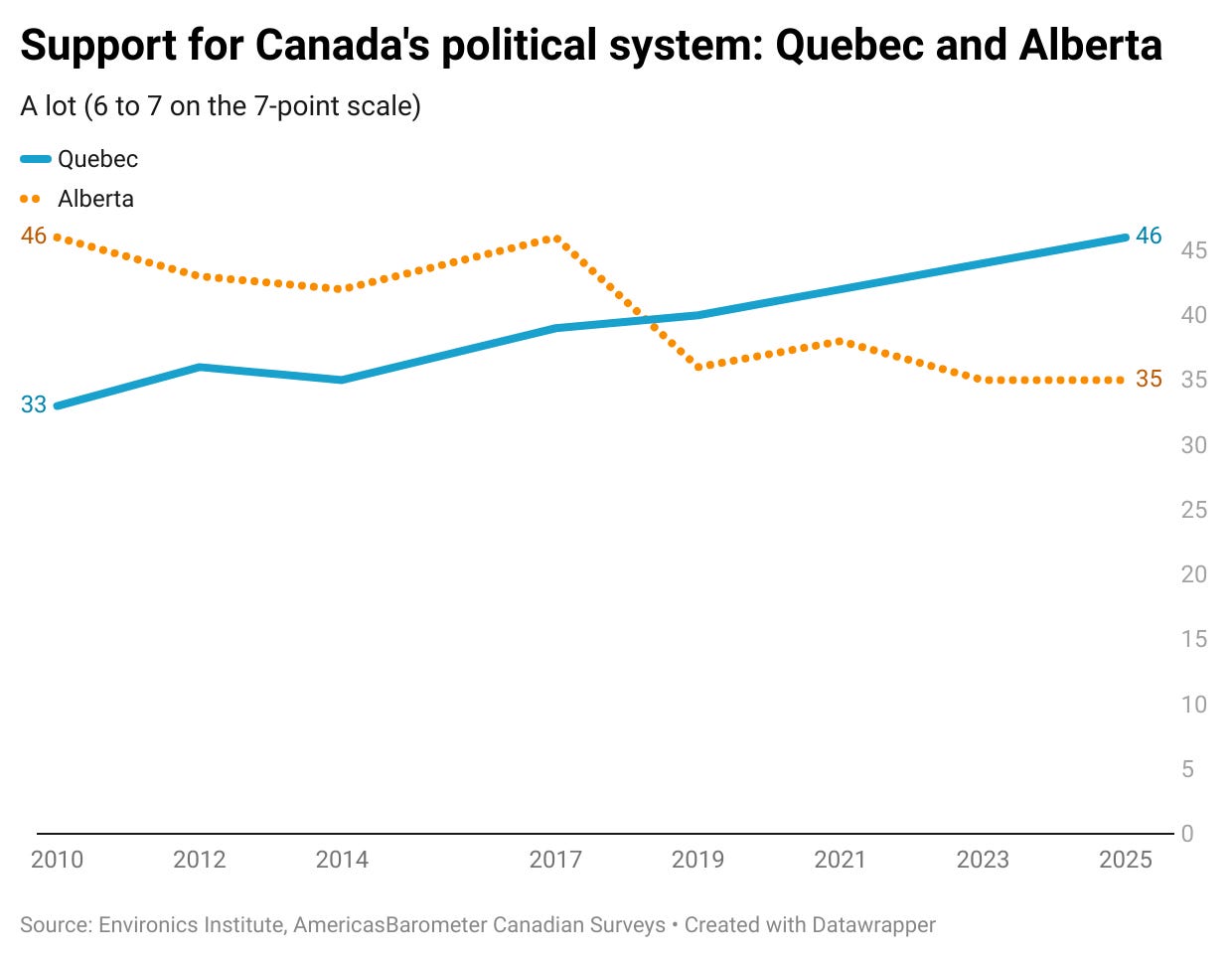
This makes sense to me. Under the current political system (bicameral, FPTP), Quebec gets a large voice in Canadian affairs. The BQ gets about 8% nationally. In a pure PR system, that would translate to 8% of the seats. If the Senate were eliminated, the BQ would be Quebec's only voice nationally. Not to speak of official bilingualism, a policy which overwhelmingly (though not exclusively) benefits Quebec.
Very interesting and counter-intuitive. Do you have the same data with respect to the other provinces, to see how they line up?